September 28, 2007
Not All Aspiring Rabbis Can Study Full Time
As an older rabbinical student, I appreciated a September 14 article on professionals who are enrolling in rabbinical school (“Growing Number of Professionals Turning to a More Holy Pursuit”). I would have wished, however, that the article had included some of the rabbinical programs geared toward older professionals who must keep working while they study. I am a student in one of those programs, the Smicha Program of Aleph: the Alliance for Jewish Renewal.
As an older, divorced woman — I am 57 — it was impossible for me to attend any of the denominational seminaries because I could not afford to stop working. The major seminaries have de facto created an economic barrier to professionals who are not in careers that have been lucrative. I am a therapist at a children’s mental health agency, and while scholarships can make the financial burden lighter, for many of us living at a certain socioeconomic level they are not enough. The denominational seminaries do not have part-time options, nor do they have distance learning.
Programs like Aleph’s are a tremendous gift to the community. Because many of our students still remain at least part-time in their bread-and-butter careers, they can serve congregations and communities too small to afford full-time, and sometimes even part-time, rabbis. They are functioning as chaplains and as teachers, as spiritual directors and as prayer leaders in far-flung places, bringing the light of Jewish learning and Jewish spirituality to those who would not otherwise receive it. Let us not forget that Rashi, the great commentator, actually ran a vineyard to earn a living.
Rhonda Shapiro-Rieser
Greenfield, Mass.
All Deaths Are Tragic According to Tradition
Opinion columnist David Klinghoffer would have us believe that in the traditional understanding, the death of a soldier in combat is no tragedy if he fought for a righteous cause (“Every Good Under the Sun Must Be Paid For,” September 21). I cannot imagine what tradition he is referring to, because the Jewish tradition maintains no such thing.
The last time I checked, Jewish parents sit shiva for dead children — no matter how they are killed. According to the Jerusalem Talmud, “Whoever destroys a soul, it is considered as if he destroyed an entire world.”
If the destruction of worlds is not tragic, then what is?
Nathan Bloom
Wynnewood, Pa.
About That Story of Fidel and Cuban Jewry
When we visited Cuba last February, Adela Dworin, the head of the Jewish community in Havana, told the now-famous story of her meeting with Fidel Castro that resulted in his visit to the Jewish community and the beginning of its subsequent revival. She told us that visit occurred in 1992, shortly after the fall of the Soviet Union, not in 1998, as reported in the article.
The rest of the story, as she told it, was that Castro asked a lot of questions about Judaism and when people couldn’t answer many of the questions — because he had banned any religious education for two generations by then — he said that they had better learn more about their religion. Castro then went on, she said, to give “the shortest speech of his career: two hours.”
Arnold and Mary Hammer
Rockville, Md.
Our Son Was Initiated Into Order of St. Joseph
Masha Leon reports that only two Jews have been initiated into the Order of St. Gregory, Rabbi Leon Klenicki and Joseph Lichten (“In Remembrance Of September 11,” September 21).
On October 9, 1999, Leonard Paul Zakim, our late son, was inducted into the Catholic order by the pope himself in Rome. Lenny served for 25 years as leader of the Anti-Defamation League’s New England region.
Lenny died on December 2, 1999. The Forward published a wonderful obituary and, if memory serves correctly, a couple of your columnists wrote about Lenny and his work. Lenny’s life made a difference in the world and to Jewry.
The outstanding Leonard P. Zakim Bunker Hill Bridge in Boston is named for him, because of his efforts to bring so many diverse groups together.
Gerald and Phyllis Zakim
Wanaque, N.J.
Kapparah Is About More Than Just ‘Cleansing’
“Cleansing” is not the first word that comes to my mind when I think of kapparah (“Yom Kippur: A Personal Journey,” September 14). It is not as if kapparah can’t mean “cleansing,” but even a cursory look at “The Brown-Driver-Briggs Hebrew and English Lexicon” makes it very clear that its preferred meanings are to “cover over, pacify, make propitiation, and atone for sins.”
Surely this may be done by cleansing our souls. But if we are talking about what the root of kapparah is, it is “about God judging us” or even a person judging us and being propitiated, as when Jacob hopes to propitiate Esau with gifts in advance (“akhaprah panav baminhah,” Genisis 32:21) so that Esau may show him favor and presumably not kill him.
I am not averse to midrash — I have written many myself. But I try very hard not to contradict the contextual text, or peshat. For me, when you do so, you detract from your objective, which is to play with the text, stretch it and add a layer of meaning that may have been hidden from us.
That said, I do hope that the author’s journey worked for him this Yom Kippur, and that all our journeys bring us a measure of what we are seeking.
Menorah Rotenberg
Teaneck, N.J.
The Forward is free to read, but it isn’t free to produce

I hope you appreciated this article. Before you go, I’d like to ask you to please support the Forward.
Now more than ever, American Jews need independent news they can trust, with reporting driven by truth, not ideology. We serve you, not any ideological agenda.
At a time when other newsrooms are closing or cutting back, the Forward has removed its paywall and invested additional resources to report on the ground from Israel and around the U.S. on the impact of the war, rising antisemitism and polarized discourse.
This is a great time to support independent Jewish journalism you rely on. Make a Passover gift today!
— Rachel Fishman Feddersen, Publisher and CEO
Most Popular
- 1

Opinion My Jewish moms group ousted me because I work for J Street. Is this what communal life has come to?
- 2
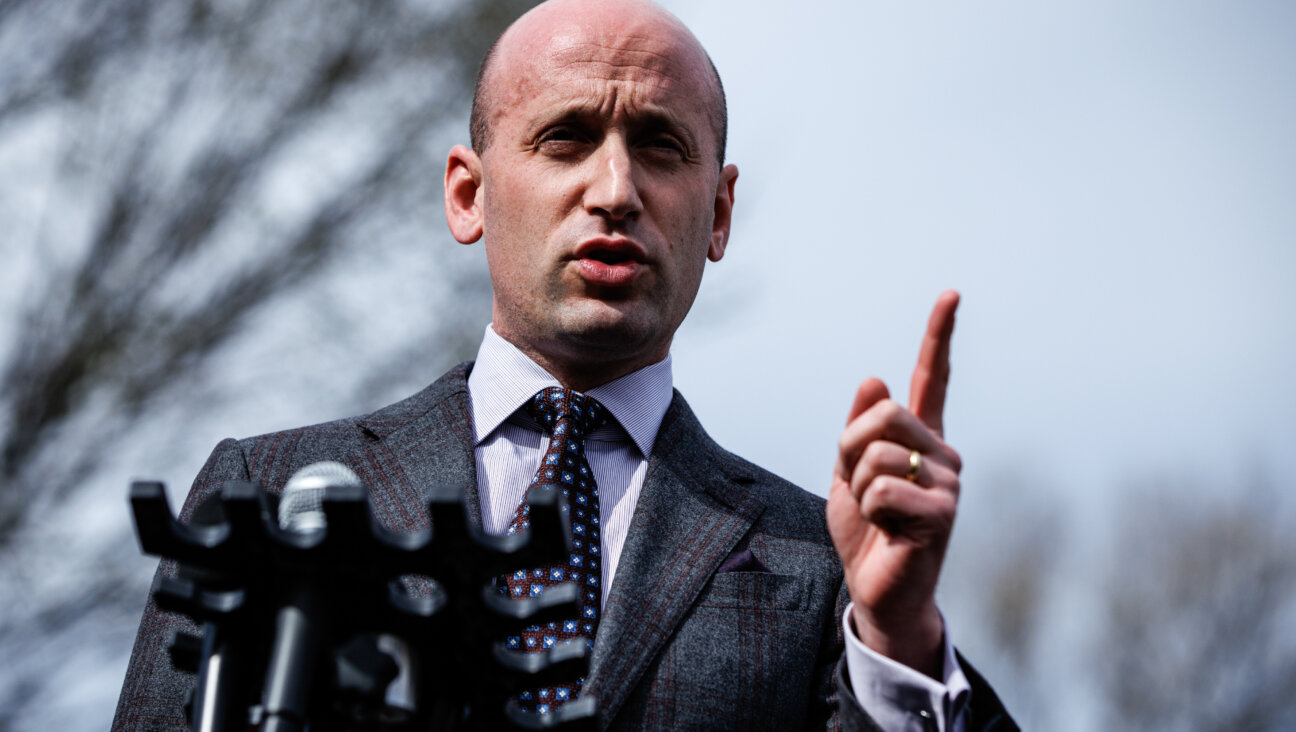
Opinion Stephen Miller’s cavalier cruelty misses the whole point of Passover
- 3
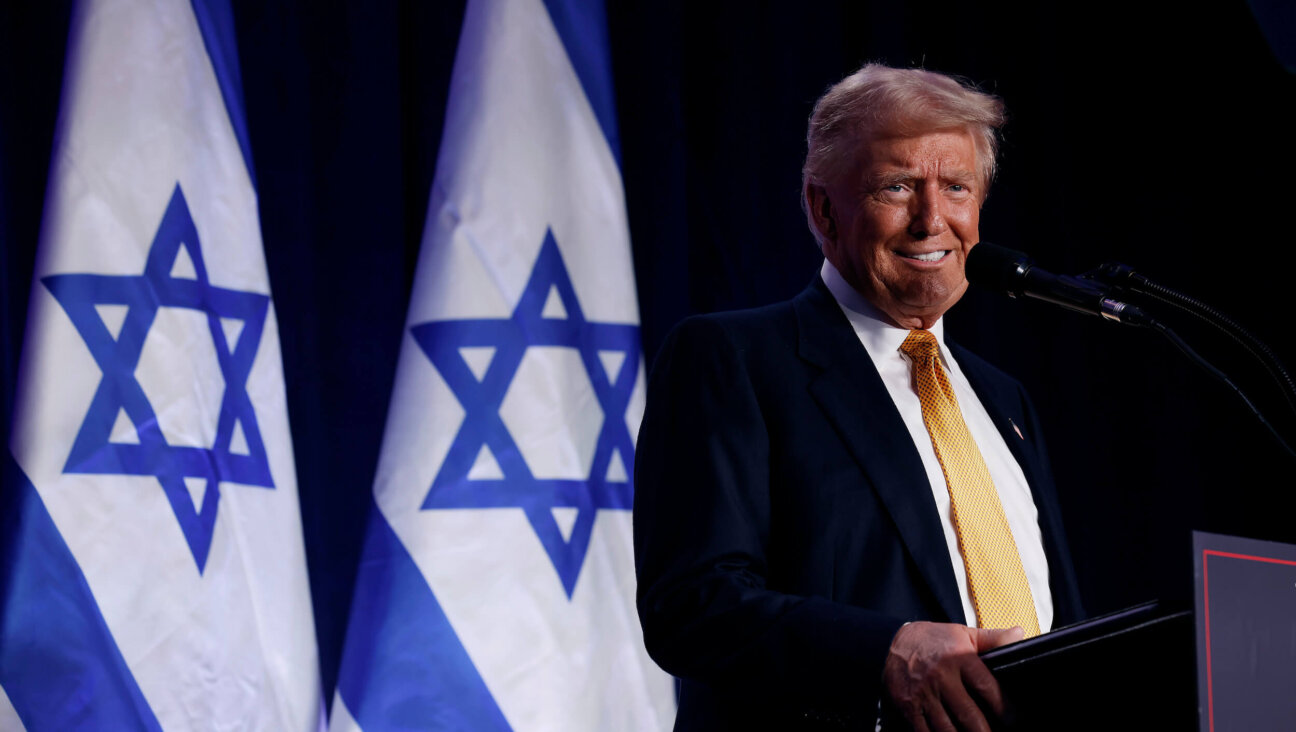
Opinion I co-wrote Biden’s antisemitism strategy. Trump is making the threat worse
- 4
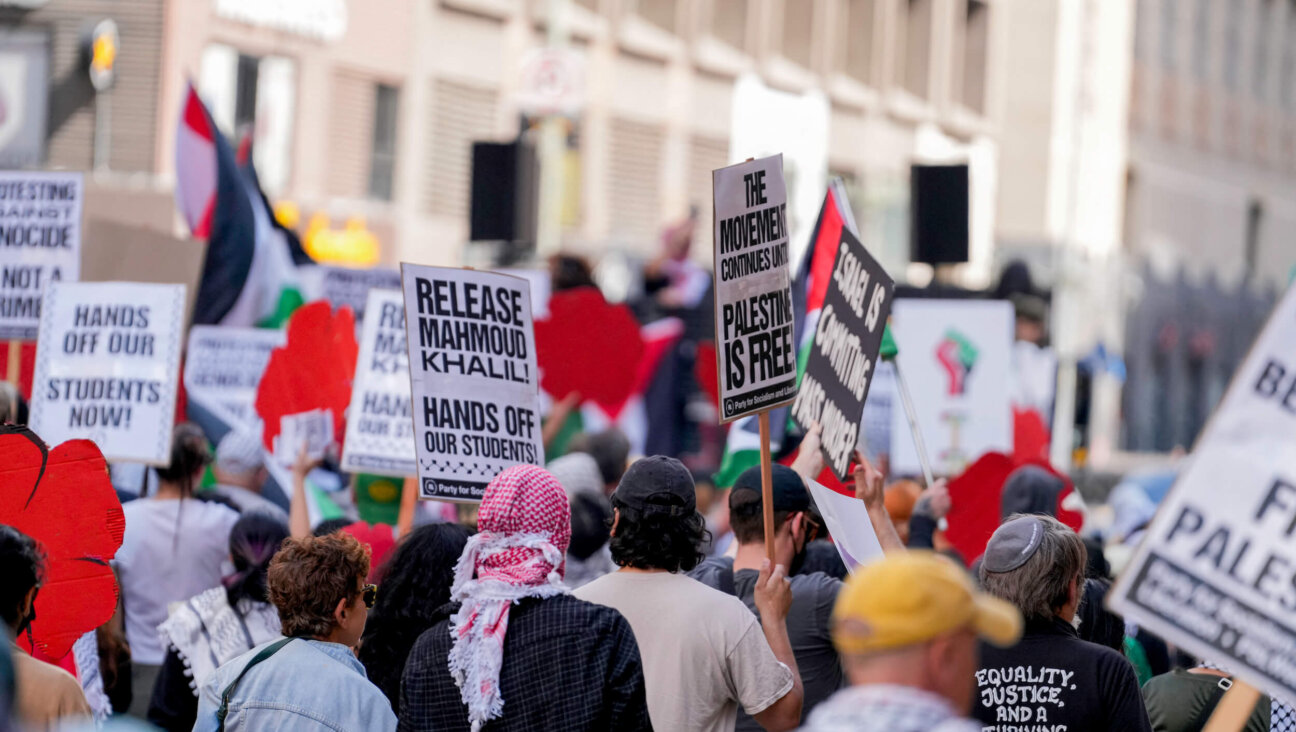
Opinion Passover teaches us why Jews should stand with Mahmoud Khalil
In Case You Missed It
-
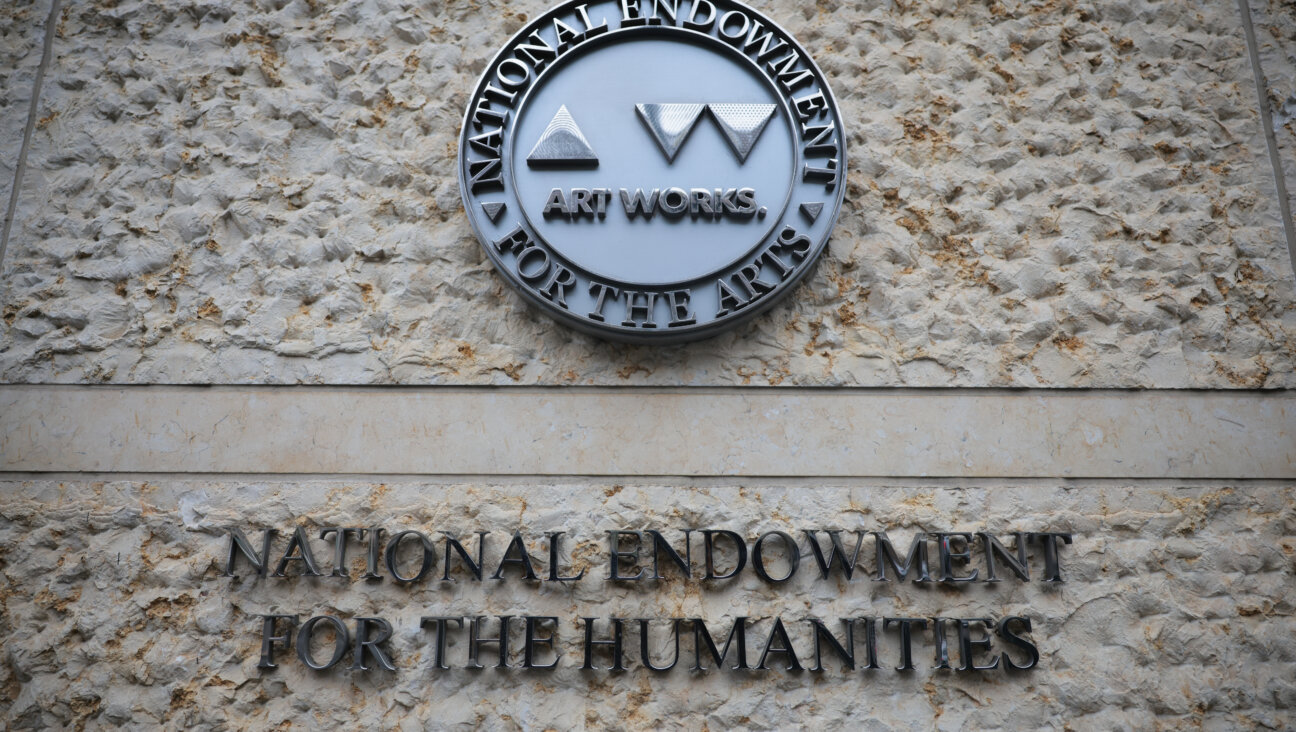
Culture Jews thought Trump wanted to fight antisemitism. Why did he cut all of their grants?
-

Opinion Trump’s followers see a savior, but Jewish historians know a false messiah when they see one
-
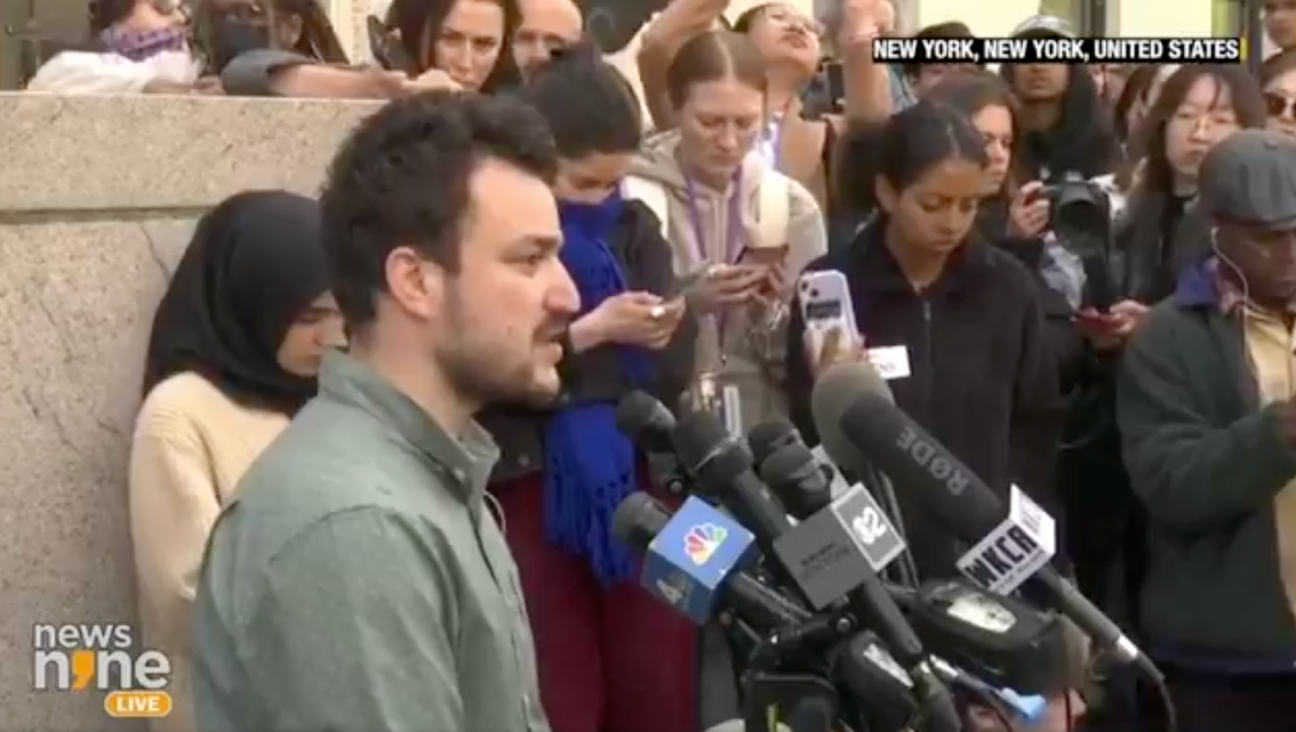
Fast Forward Trump administration can deport Mahmoud Khalil for undermining U.S. foreign policy on antisemitism, judge rules
-
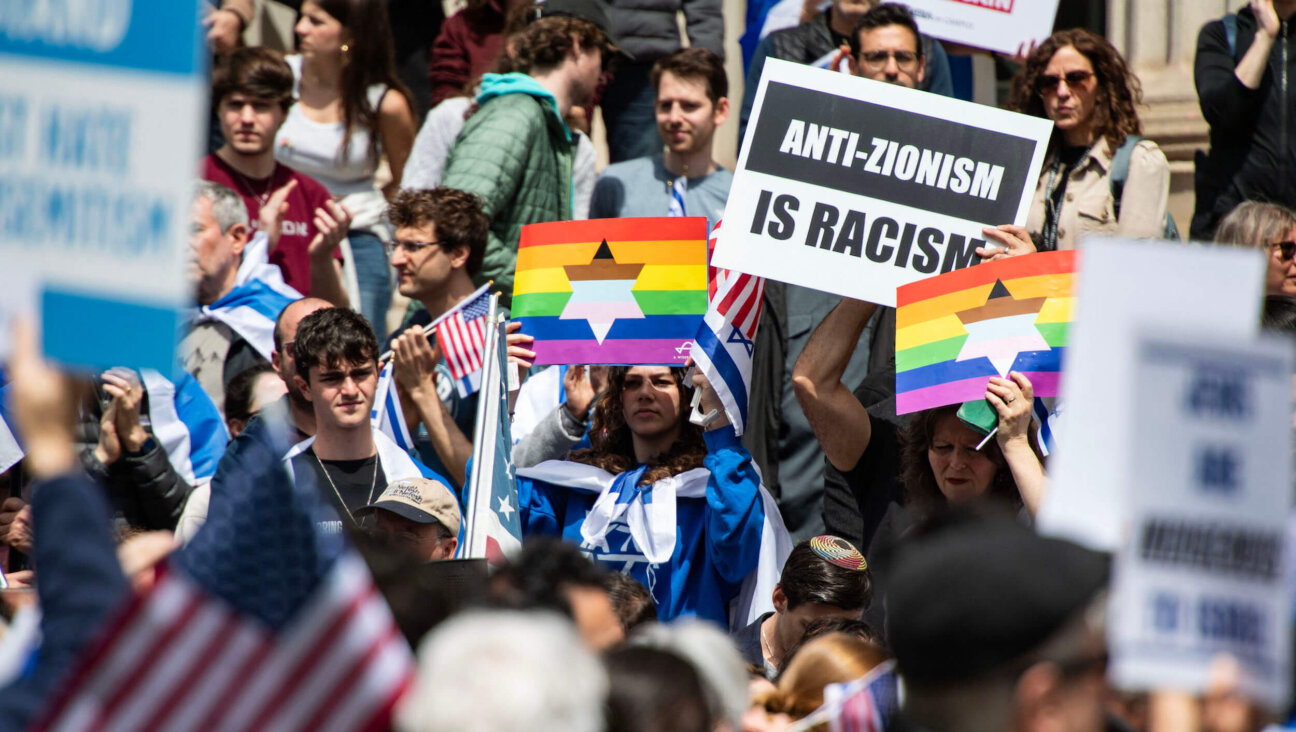
Opinion This Passover, let’s retire the word ‘Zionist’ once and for all
-
Shop the Forward Store
100% of profits support our journalism
Republish This Story
Please read before republishing
We’re happy to make this story available to republish for free, unless it originated with JTA, Haaretz or another publication (as indicated on the article) and as long as you follow our guidelines.
You must comply with the following:
- Credit the Forward
- Retain our pixel
- Preserve our canonical link in Google search
- Add a noindex tag in Google search
See our full guidelines for more information, and this guide for detail about canonical URLs.
To republish, copy the HTML by clicking on the yellow button to the right; it includes our tracking pixel, all paragraph styles and hyperlinks, the author byline and credit to the Forward. It does not include images; to avoid copyright violations, you must add them manually, following our guidelines. Please email us at [email protected], subject line “republish,” with any questions or to let us know what stories you’re picking up.
















